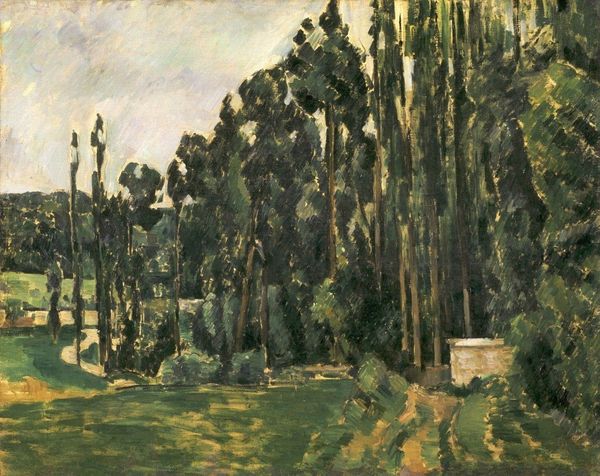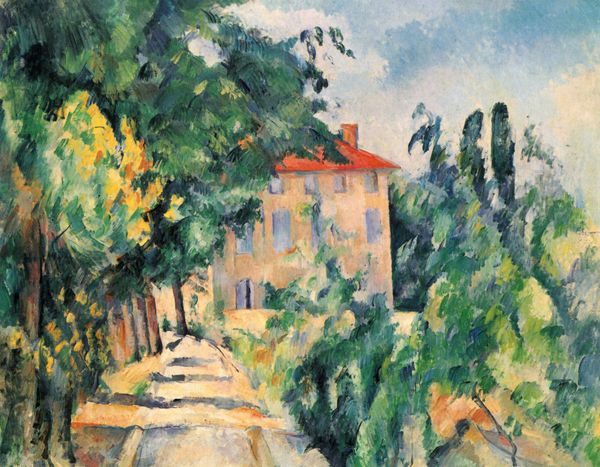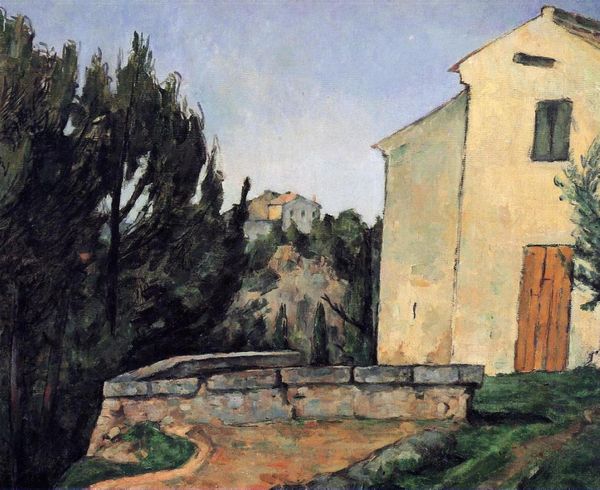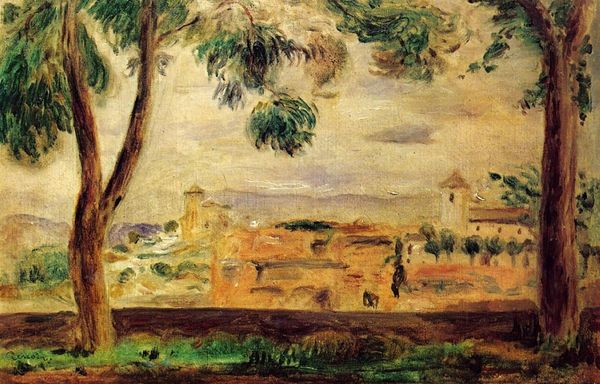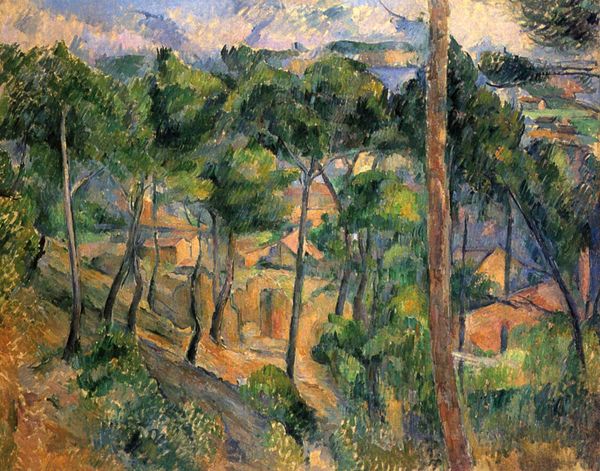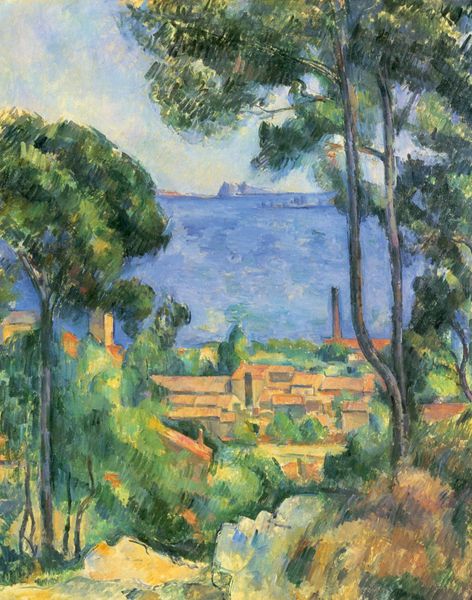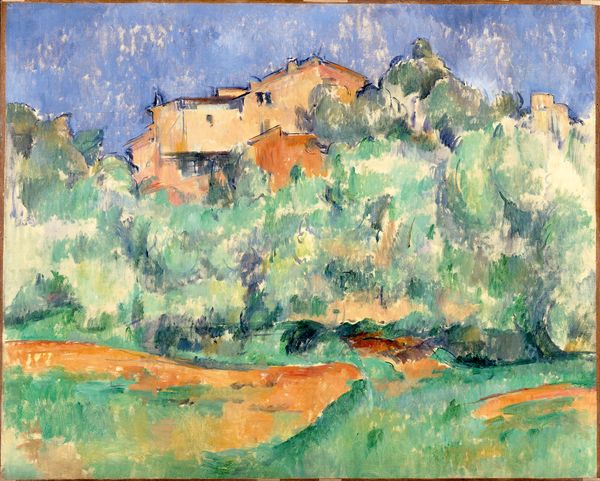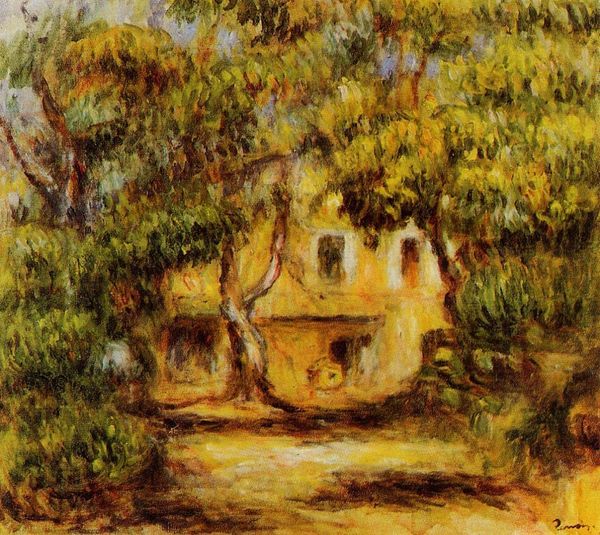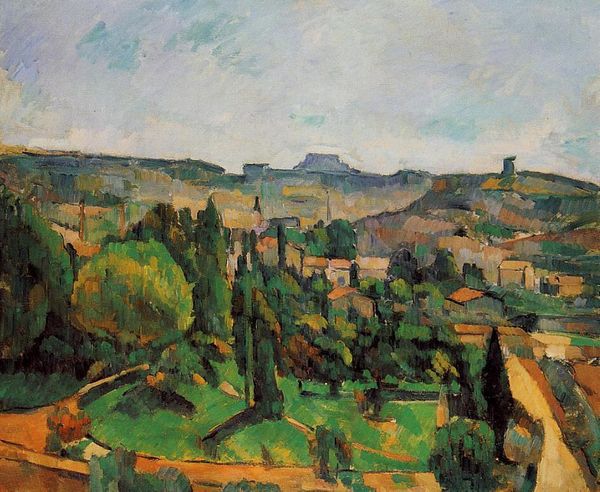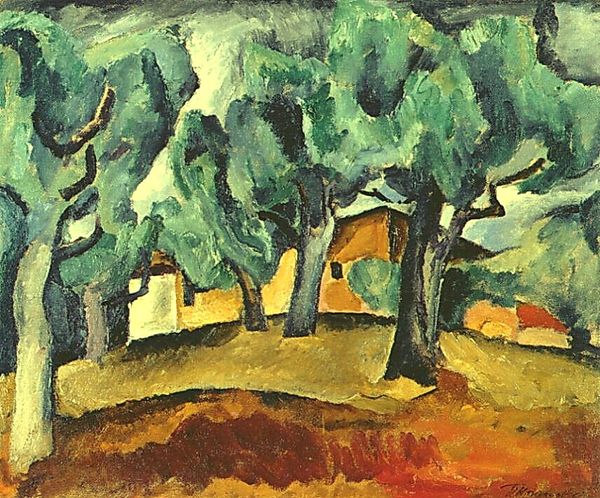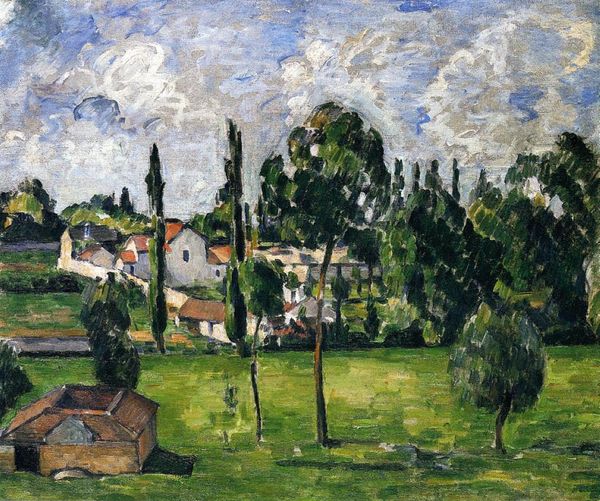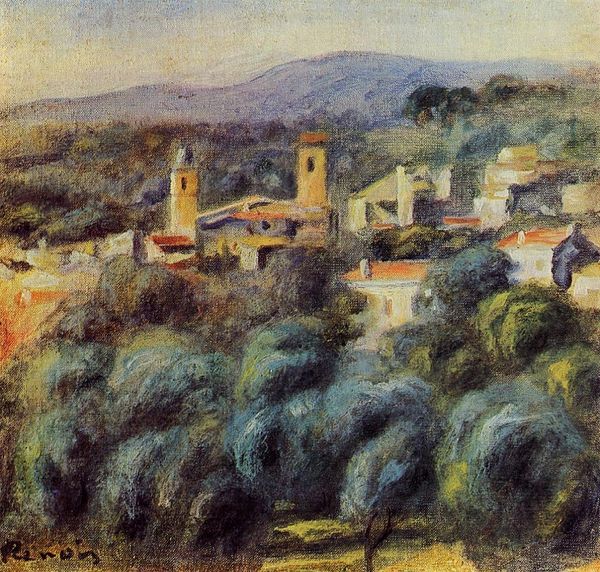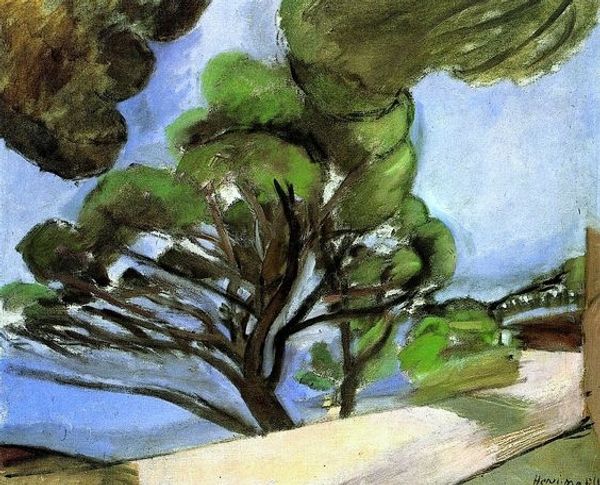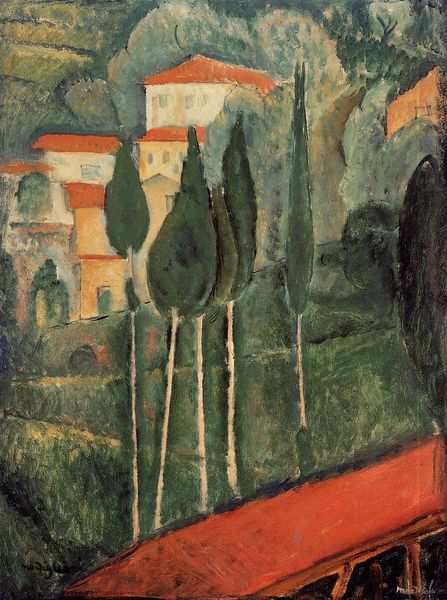
painting, plein-air, oil-paint
#
painting
#
impressionism
#
plein-air
#
oil-paint
#
landscape
#
impressionist landscape
#
form
#
oil painting
#
post-impressionism
#
realism
Copyright: Public domain
Paul Cézanne painted Jas de Bouffan, a house and grounds in Aix-en-Provence, likely in the 1870s. Cézanne, born into a world of stark class divisions, was the son of a wealthy banker. This privilege afforded him the freedom to pursue his artistic passions, yet he remained an outsider, straddling the bourgeois world of his father and the bohemian circles of his artist friends. Cézanne's landscapes often reflect this sense of distance. Jas de Bouffan presents an idyllic scene, but with a composed detachment. The house sits atop a gentle rise, viewed through a screen of trees. The brushstrokes, though vibrant, maintain a certain reserve. "Painting from nature is not copying the object; it is realizing one's sensations," Cézanne once said. He wasn't interested in portraying the world as it appeared, but rather in capturing his own subjective experience of it. This painting becomes less about a specific place and more about the act of seeing, feeling, and translating those sensations onto canvas. It is an exploration of the self in relation to the world, a quiet meditation on the complexities of belonging and observation.
Comments
No comments
Be the first to comment and join the conversation on the ultimate creative platform.
